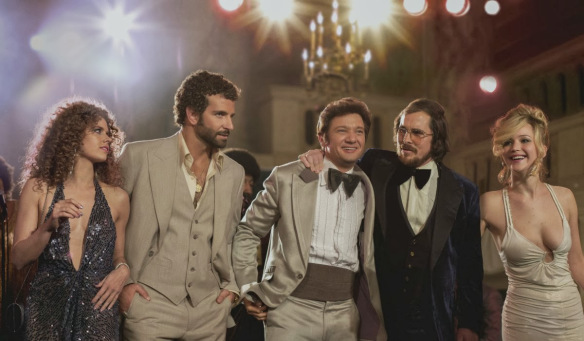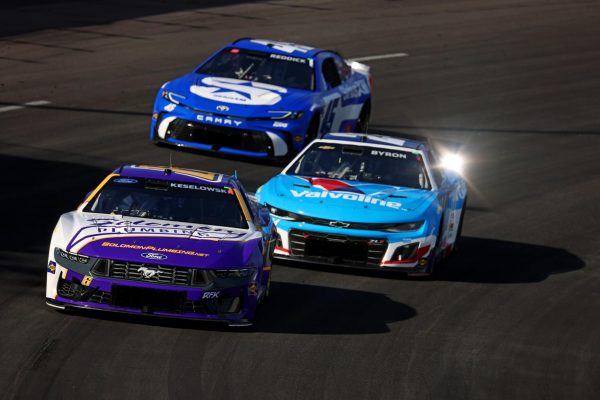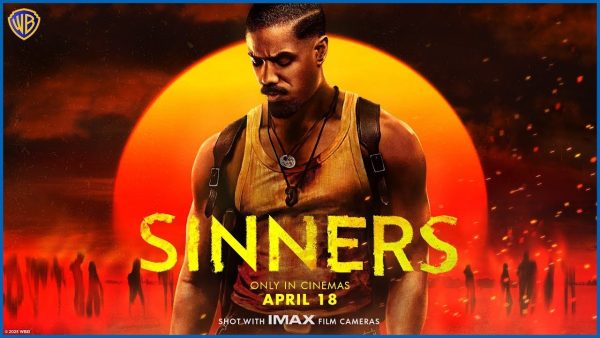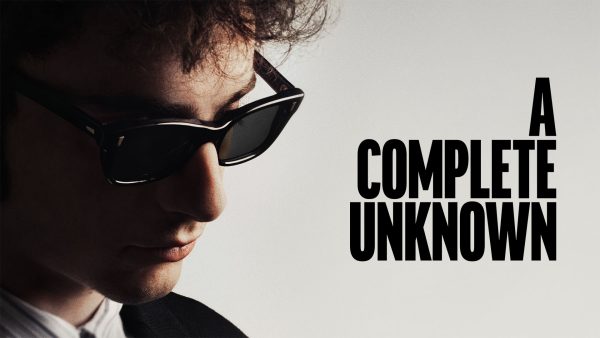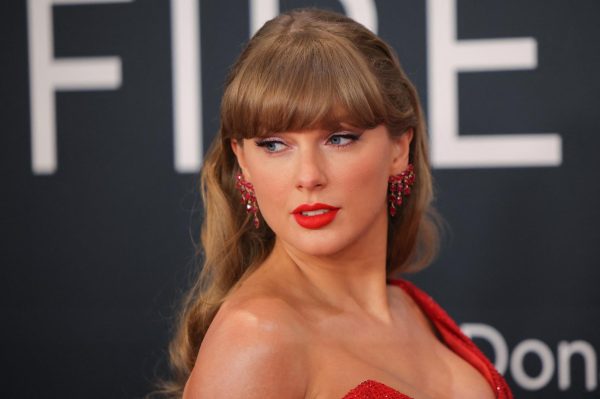“American Hustle” is Breezy ’70s Escapism With Genuine, Penetrating Edge
There’s few comeback stories in Hollywood that are based on genuine artistic merit — too often, they move on some sort of apologist compensation than on the actual quality of the new work. The revitalization of writer-director David O. Russell, then, has been one of the most delightful surprises in recent film history. The story goes a little like this: David, a young Amherst philosophy major, ventures out into independent film and finds great success with incendiary films dabbling in incest, psychology and the inanity of war — but soon develops a reputation as a psychologically, physically abusive asshole on his film sets and is ostracized from the industry.
The damning stories surrounding Mr. O. Russell for much of the early decade would be more than enough to sink a director with three times his reputation — but with the release of The Fighter and Silver Linings Playbook, two Oscar-winning dramas with a nutty energy and intense focus on character, he’s rebounded into the forefront of current American cinema. American Hustle is certainly the apotheosis of this new stage in his career — it’s a loose, improvisational, swaggering period-piece with a fairly strong disregard for conventional plot mechanics and payoffs. There’s a lot of catharsis to be found in American Hustle, yes, but not through the extensive scams and heists the characters pull — moreso in the relationships amongst themselves. It’s a movie about criminals that is wholly disinterested in criminality, but rather, the psychological and emotional shrapnel that constant deception leaves in one’s self. It’s weighty stuff, but also delivered in one of the frothiest, most effortlessly entertaining works of the year.
The year is 1978 and con artists Irving Rosenfeld (Christian Bale) and Sydney Prosser (Amy Adams) are madly in love. Selling fake checks and counterfeit artwork to anyone that will buy, the two have a fairly successful operation going — until coked-out, over-ambitious FBI agent Richie Di Maso (Bradley Cooper) catches the duo red-handed. Rather than throw them in jail, Di Maso employs the two as part of an elaborate scheme to catch other crooks, politicians and mobsters red-handed — starting off with Carmine Polito (Jeremy Renner), a genuinely well-intentioned New Jersey mayor whose efforts to revitalize his city have led him to illegal funding. One of the recurring ironies of American Hustle is that the closest thing it has to a ‘villain figure’, Polito, is in fact, the most selfless, sweet character in the film — this being just one of many playful tweaks with audience sympathies and character dynamics.
O. Russell’s considerable skill as a technician are on full display here, too — the glitzy period details of the ’70s locations, the elaborate comb-overs and hysterical hairstyles, the swirling camerawork, the booming soundtrack of period songs both obscure and obvious. Comparisons to another American auteur whose recent work I’ve given considerable praise (Scorsese & Wolf of Wall Street, respectively) are pretty on-the-nose at face value — the swagger, the sheer confidence of filmmaking — but fairly shallow beyond there. Scorsese’s period epics tend to document elaborate lifestyles and their seductive qualities, where O. Russell’s focus is more on interpersonal deception.
Where American Hustle‘s momentum is somewhat lost is when the character crises slow to a crawl and the (mostly fictionalized) events reach their conclusion. O. Russell spends so much time asserting the moral ambiguities of the characters and reminding his audience that the ‘good’ and ‘bad’ guys are often psychologically indistinguishable — so when the respective characters meet their wildly different fates, it seems incongruous with what came before it. It genuinely seems to lose sight of what sort of film it wants to be, but only in its final moments. What comes before then, however, is a sort of blissful marriage of ’40s star-studded Hollywood breeze, ’70s New Hollywood egotism and the genuinely modern, original sensibilities of one of our most gifted directors. It’s good, guys.




